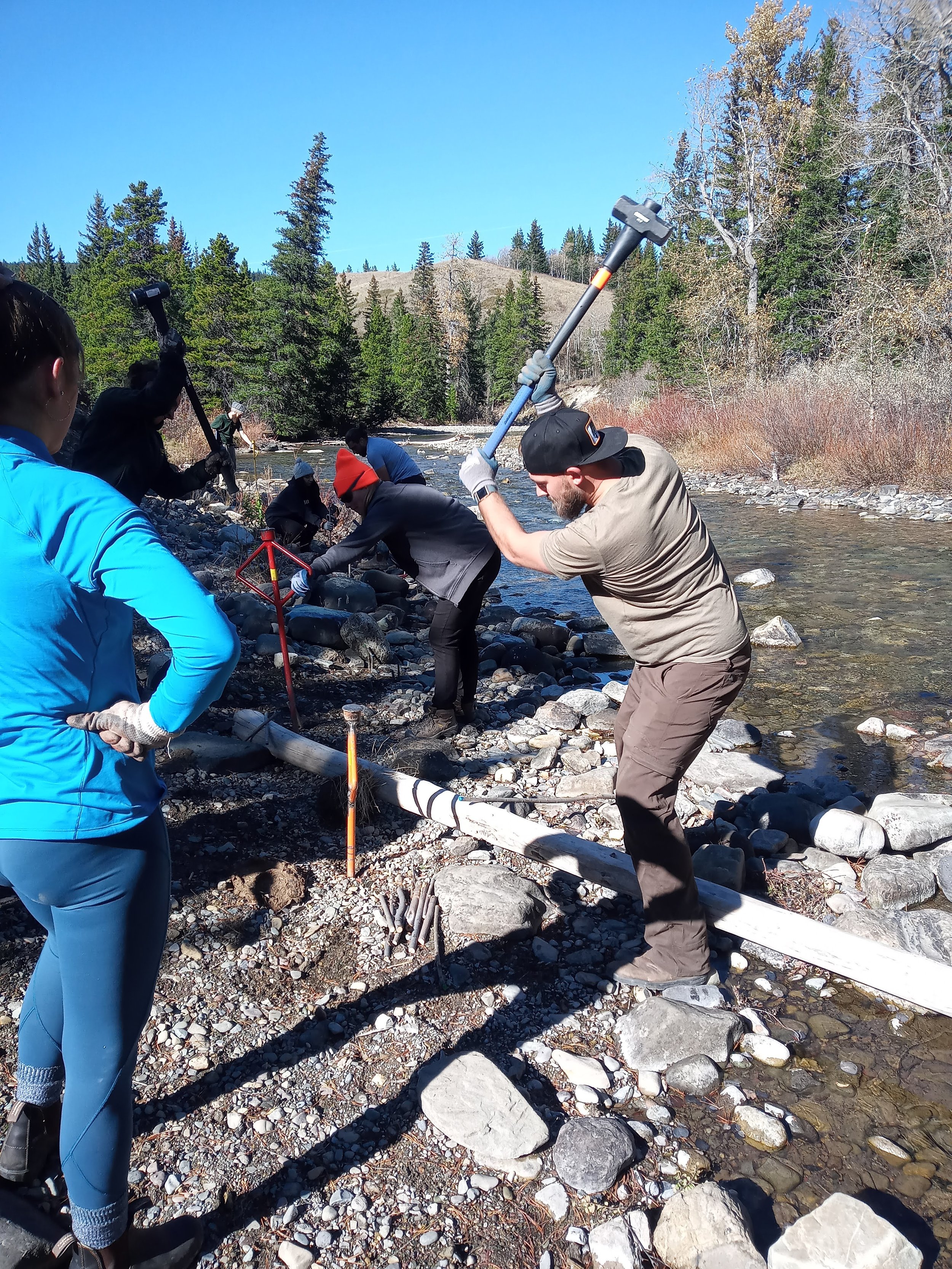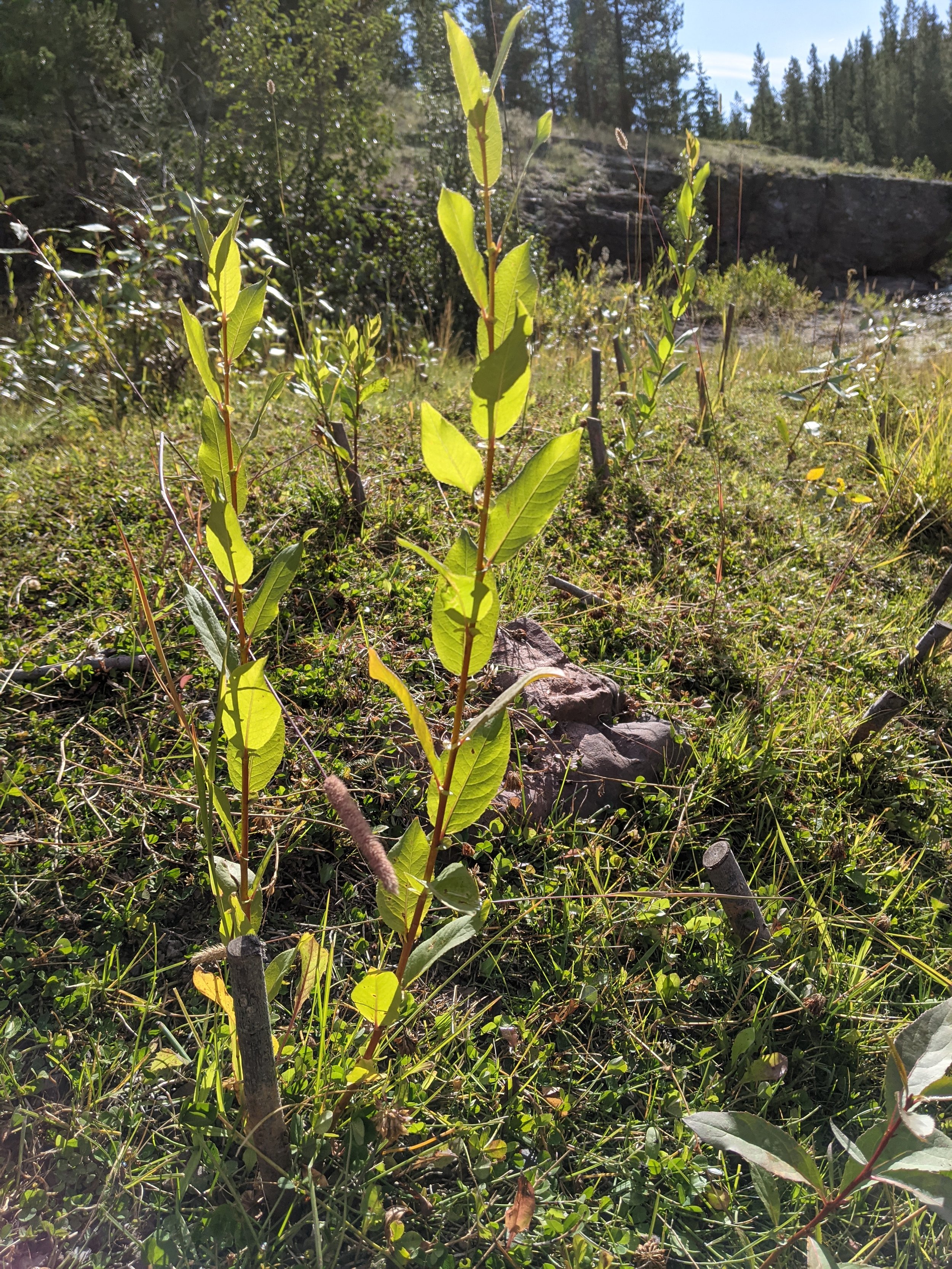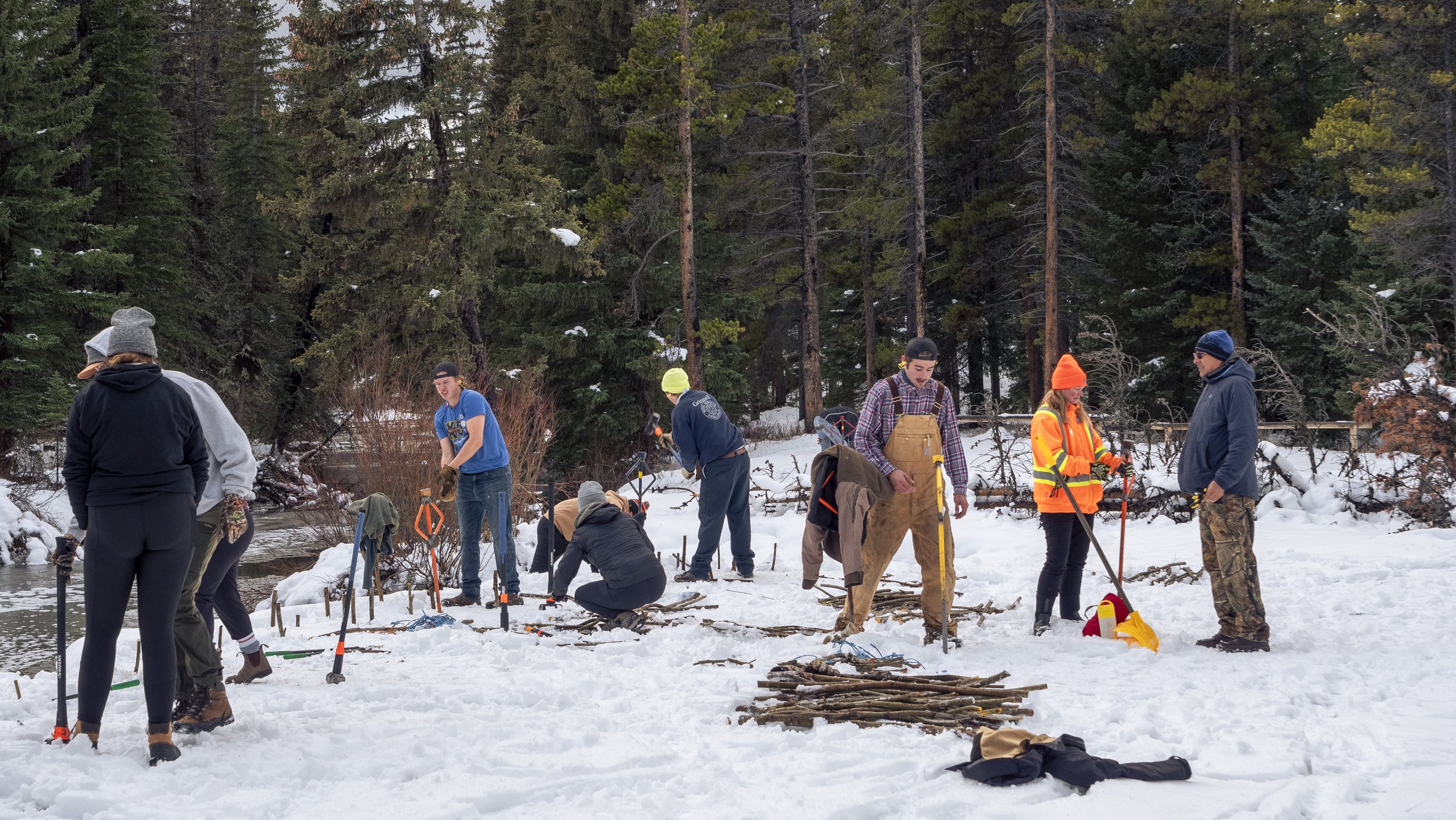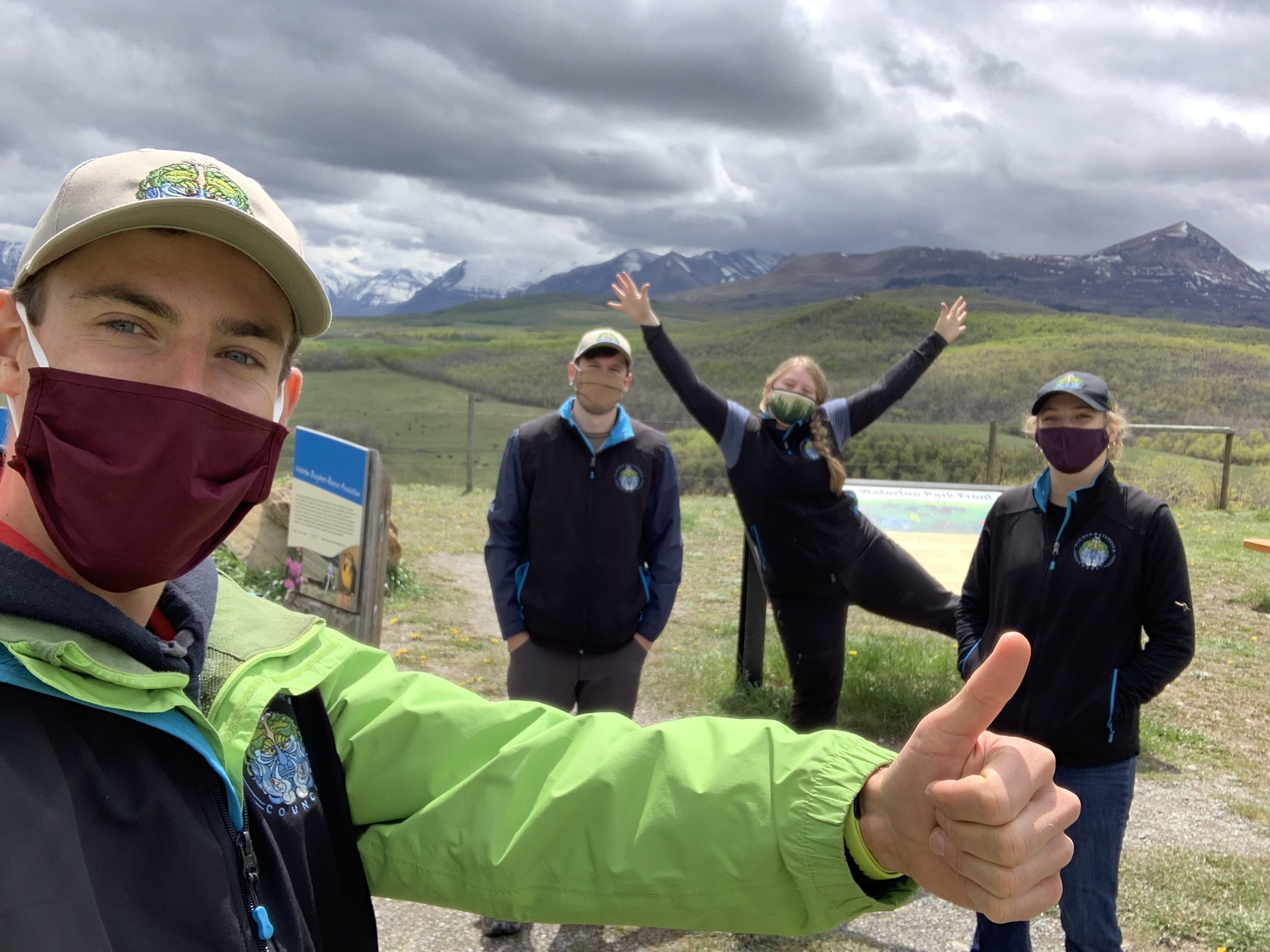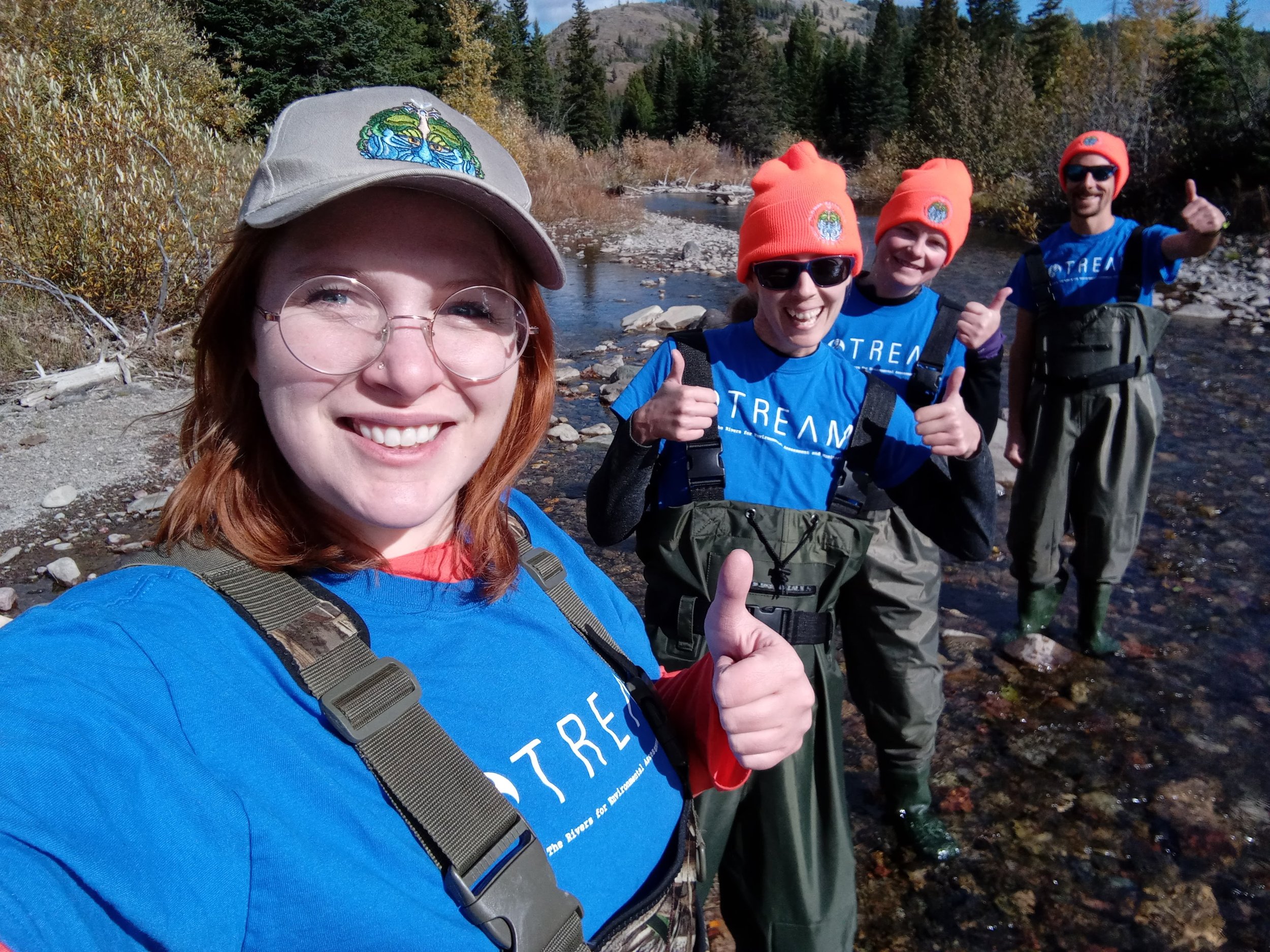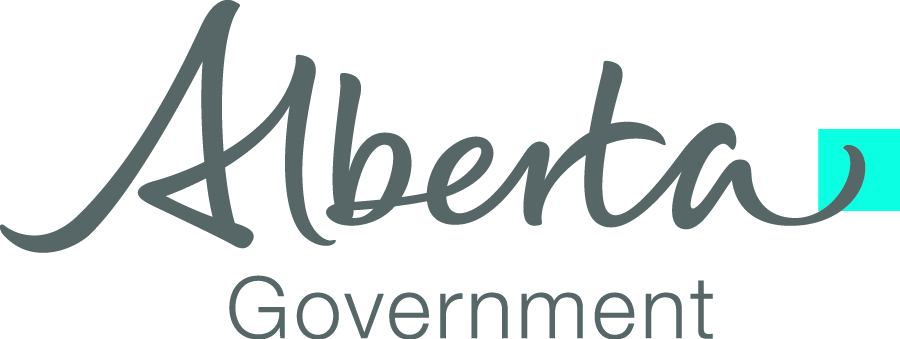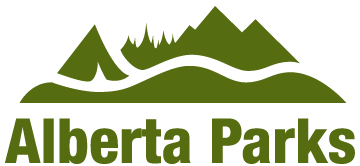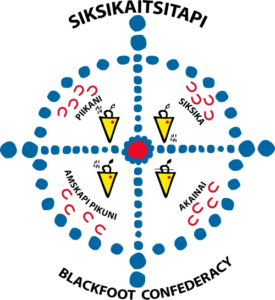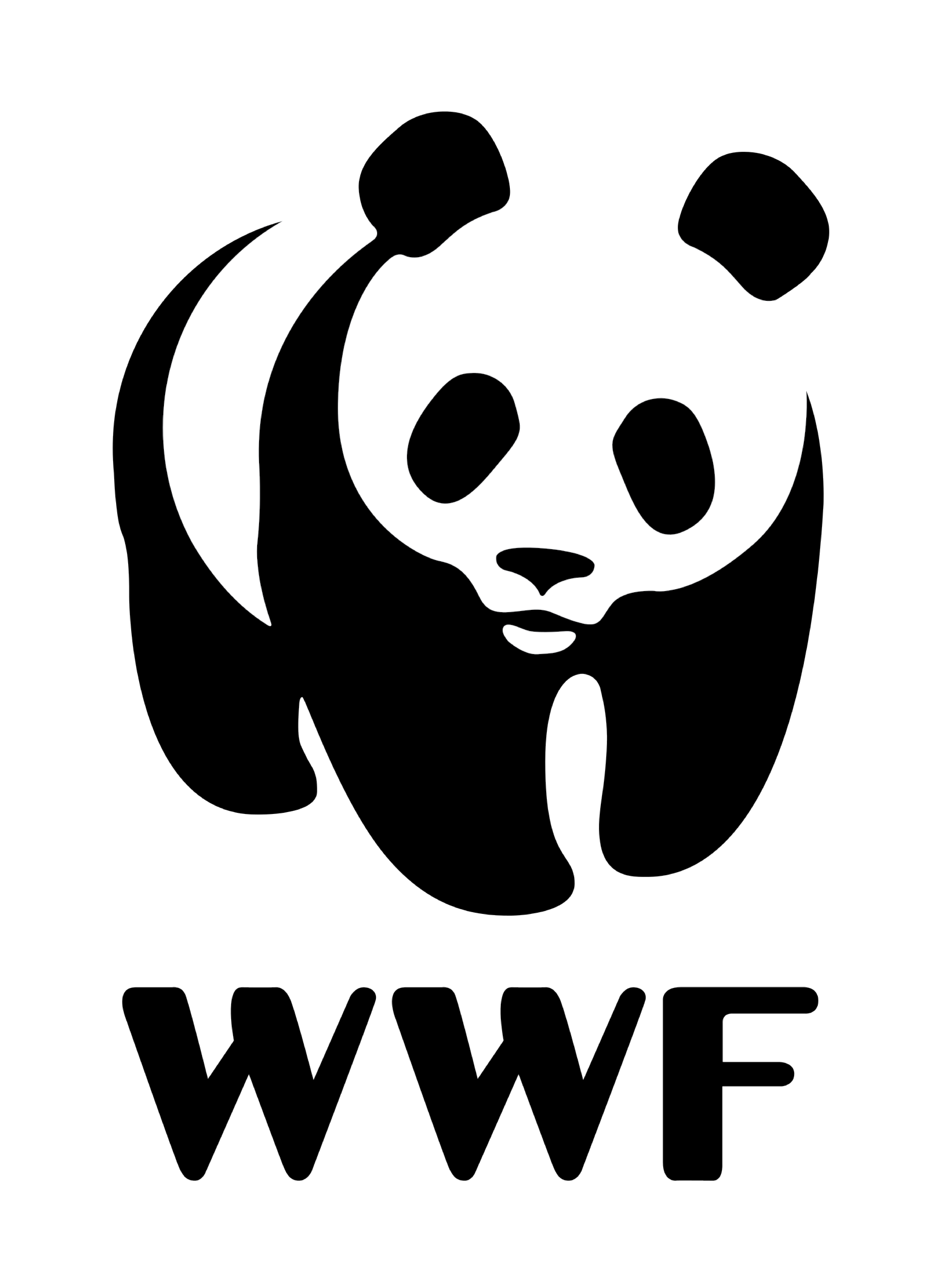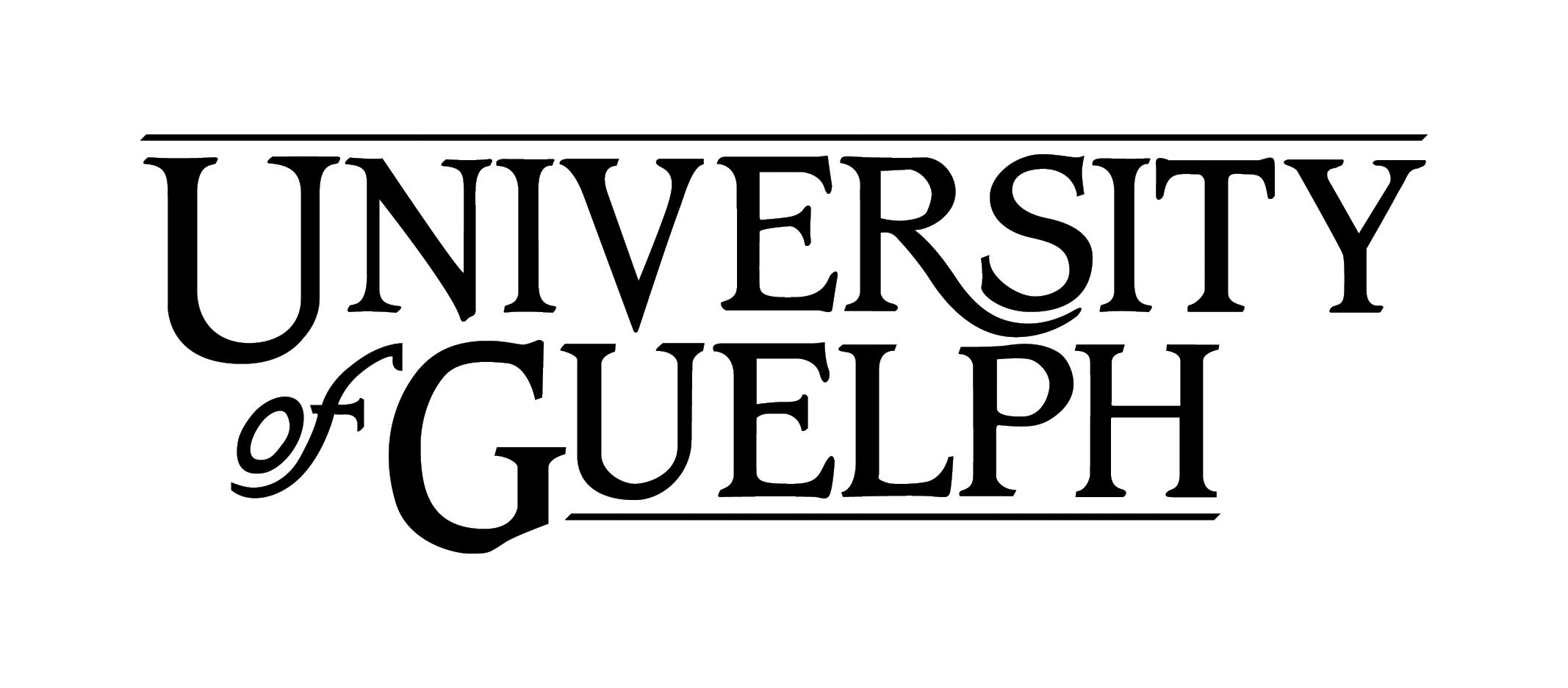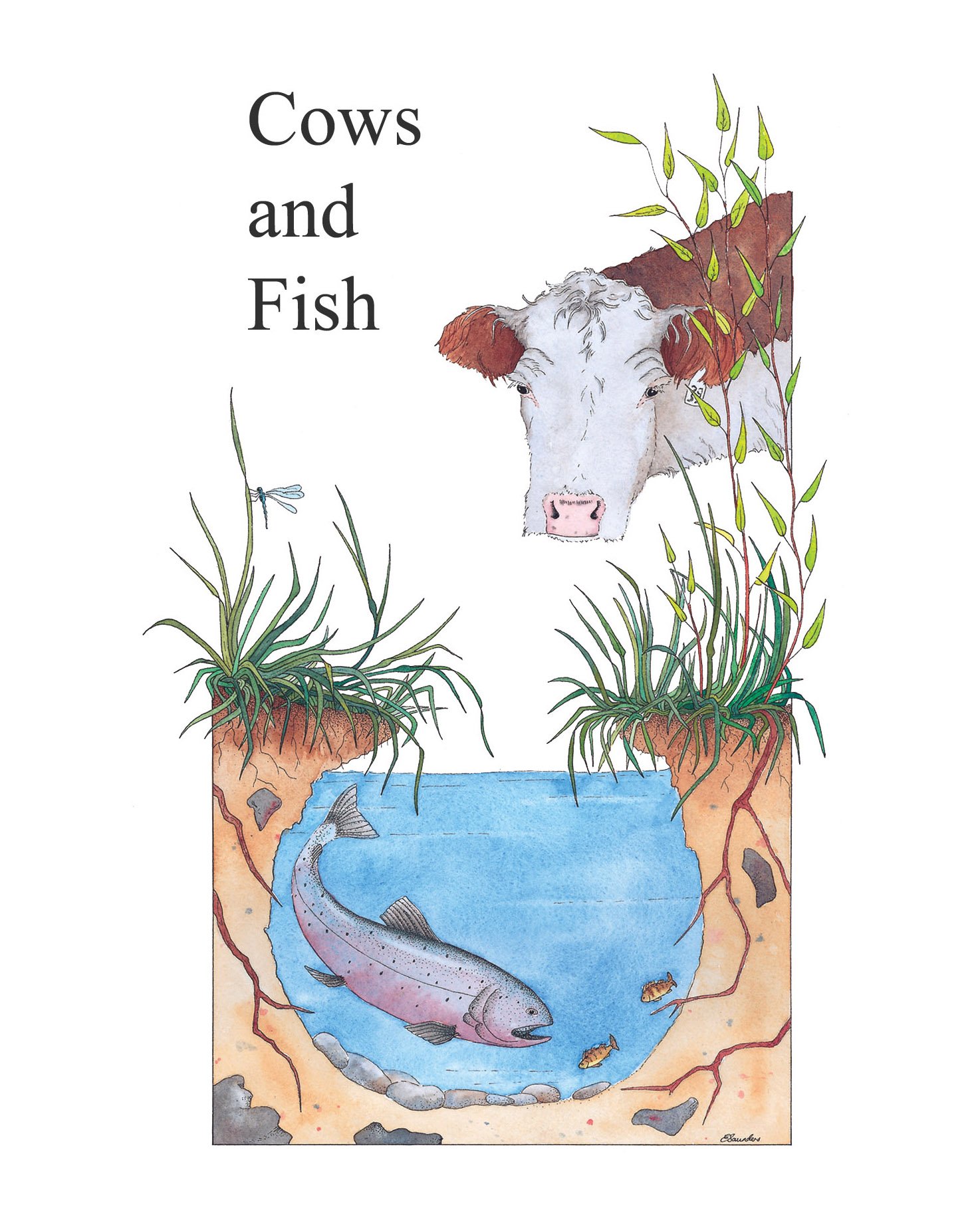OVERVIEW
The Headwaters Restoration and Education Project arose out of the successful Engaging Recreationists Project. The audience was expanded to include land users beyond recreationists and offered more in-person restoration and educational programs. It focussed on the education and engagement of adult land users, such as fishers, farmers, ranchers, and landowners, among others.
WHAT was DONE
Surveying Backcountry Recreationists
The OWC hired seasonal Outreach Assistants, and one of their key tasks is to conduct recreationist surveys in the backcountry. They spoke to recreationists about their values, concerns, and stewardship activities in our headwaters. The results of our survey responses highlighted trends and helped us identify some areas where more education and engagement may be helpful.
We delivered various interactive educational programs about benthic macroinvertebrates (insects that live on the bottom of creeks), native fish, and invasive species at public outreach events and day use areas. Educational programs were created specifically to encourage recreationists to keep wheels out of water.
Restoring Streambanks Back to Health
Together with landowners, volunteers, and partners, we staged events to stabilize streambanks using bioengineering techniques across our headwaters. Each volunteer restoration event included a safety talk, willow-staking demonstration, lots of physical effort and teamwork, and a delicious locally-sourced lunch.
Watershed Health Assessments
We collected benthic invertebrate samples using the CABIN protocols, and conducted riparian health assessments at previous or future restoration sites in our headwaters. These assessments often involved long hikes while carrying heavy sampling equipment, but they provide crucial insight into how healthy our creeks and rivers are and allow us to monitor the impact of our restoration activities.
Samples were submitted to labs for water chemistry, DNA metabarcoding, and morphological/taxonomic analysis. We were pleased that the water quality in the Oldman watershed has often scored ‘excellent’ or ‘very good’ based on the Hilsenhoff Biotic Index.
Communicating Results
We delivered a number of presentations about this project to audiences across the province, country, and even the world, including the World Environmental Education Congress in Prague in 2022. While networking at the event, our Education Program Manager contributed a video for an ‘Environmental Education and Community Engagement’ online course that was offered worldwide in 2022 by Cornell University’s Civic Ecology Lab.
SUPPORTERS, FUNDERS & PARTNERS
This project was supported by grants and in-kind contributions from: Watershed Resiliency and Restoration Program (Government of Alberta), Alberta Conservation Association, Habitat Stewardship Program for Aquatic Species at Risk, EcoAction Community Funding Program, Canada Summer Jobs, Spray Lake Sawmills, Cows and Fish, Siksikaitsitapi (Blackfoot Confederacy), Alberta Parks, Calgary Heritage Roasting Company, Wirzba Consulting, Upãya Consulting, Living Lakes Canada, University of Guelph, World Wildlife Fund Canada, and numerous volunteers. Thank you for your support!




